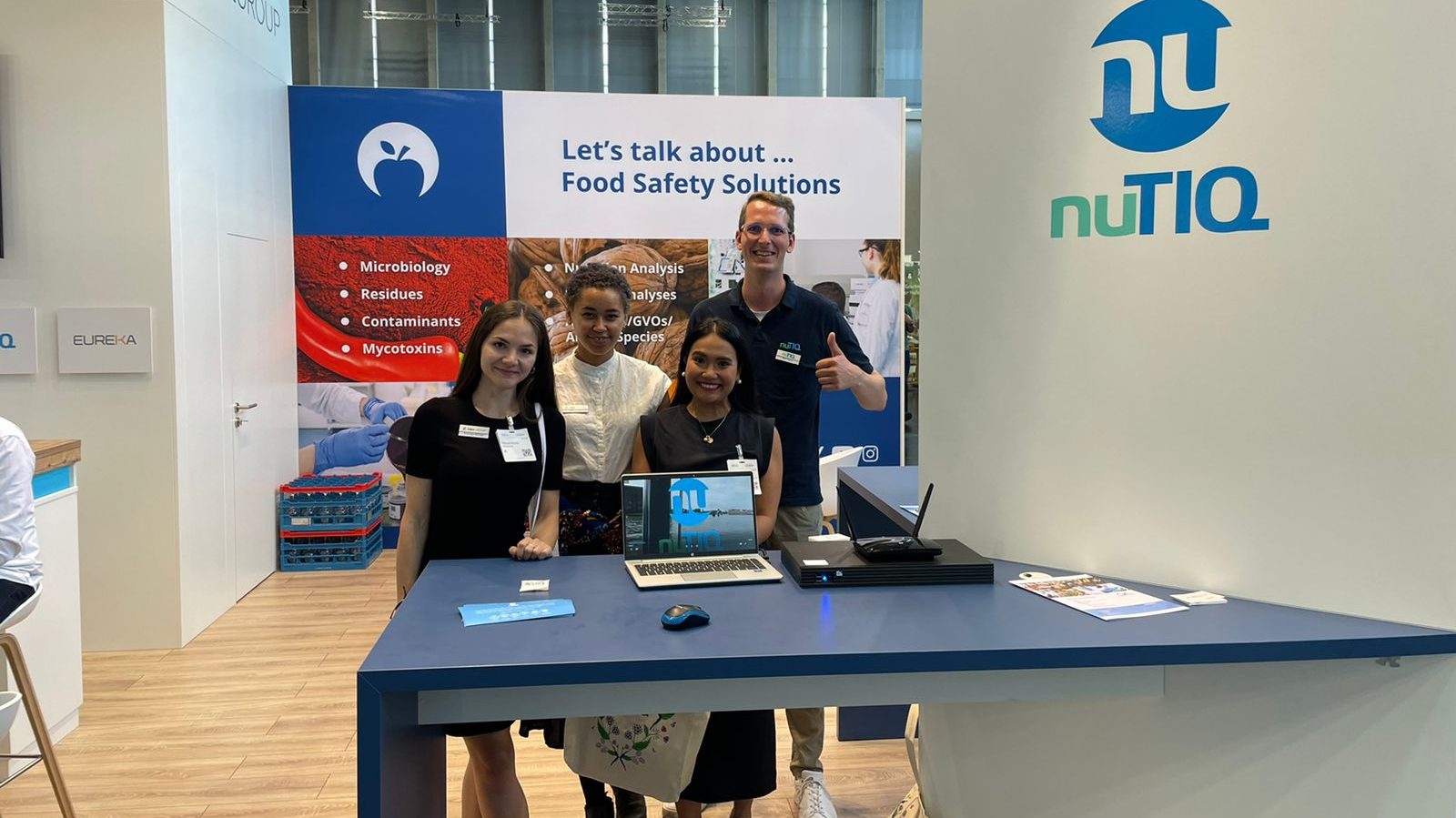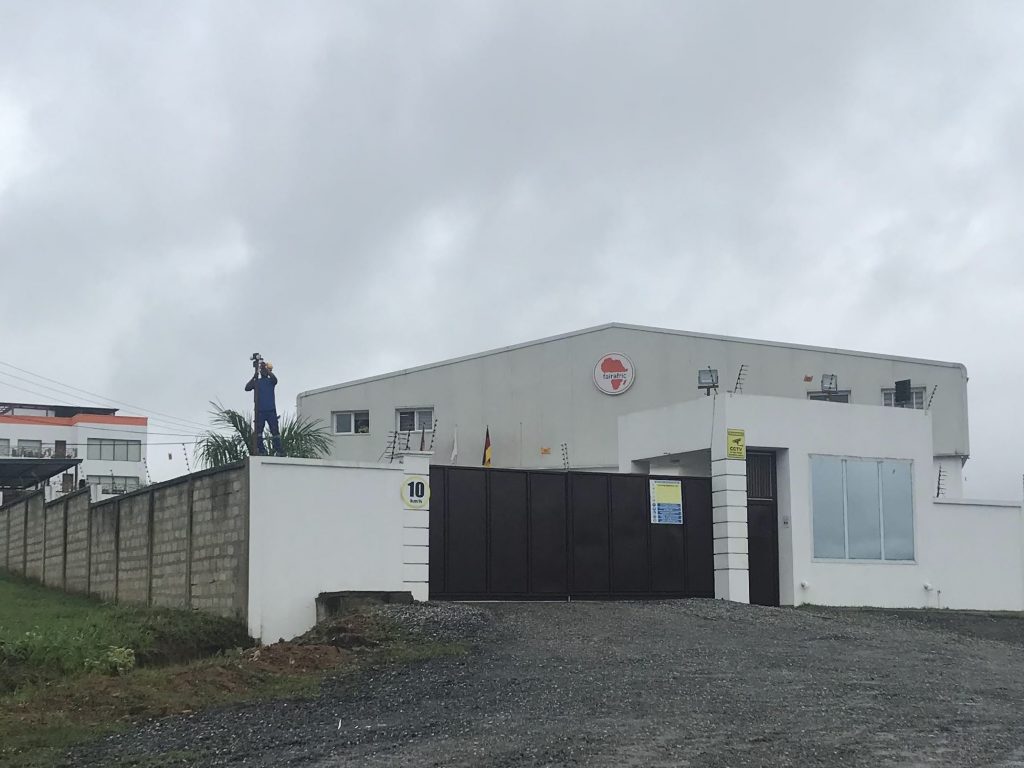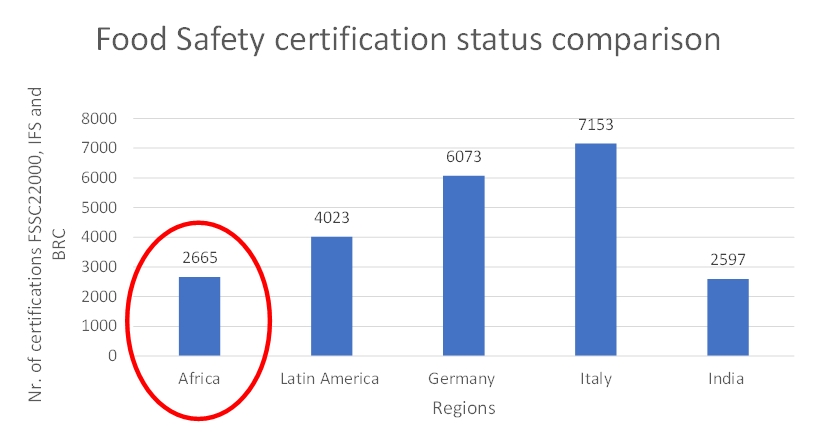Transdisciplinary co-creation to manage upcoming food safety challenges
Co-creation, sharing knowledge, and learning together in a transdisciplinary way will bring us further to the upcoming challenges in the food industry. For example, food chain efficiency and efficacy must be improved immediately. According to King et al. (2017), 9 billion people will be on the planet by the year 2050, needing 70% more food and requiring the food chain to become completely sustainable. Food safety issues will arise due to global megatrends such as climate change, a rising ageing population, greater urbanization, and increased prosperity. These issues will impose new demands on food companies (King et al., 2017). In emerging economies, governmental capacity is restricted, as well as effective consumer demand, which prevents them from quickly achieving the same food standards and results as high-income countries (Unnevehr, 2017).
Food safety and food security management
Food safety is connected to food security via health and livelihoods. Therefore, it is vital to improving food safety in order to tackle the issue of food security (Unnevehr, 2017). Despite the fact that food security is of equal significance to importing and exporting nations, a number of nations have inadequate food safety regulations and have not yet created effective monitoring or reporting methods to detect and track foodborne diseases (WHO, 2015). Enforcement of food safety regulations and robust monitoring networks are necessary at the national, regional, and international levels (WHO, 2015). According to the FAOin ‘The State of Food Security and Nutrition in the World' (2022), increasing infrastructure through the complete value chain is essential for improving food safety. For instance, proper and reliable curing and storage facilities are essential to reducing linked to cancer mycotoxins (e.g. aflatoxins) in wheat, nuts, and related dry staple foods; capital-intensive cold chains that meet food quality standards are required for the export of aquatic food.
Need for transdisciplinary co-creation in food
We cannot do this alone; digitalization in the food sector and emerging food quality practices in emerging countries are both complex issues. Co-creation, the collaborative effort of an organization's different stakeholders to improve the value creation process, is critical in generating common objectives (Kim et al., 2020). Most crucially, the larger the variety among ecosystem participants, the stronger the support for innovation within the value of the co-creation cycle (Eckhardt et al., 2021). The difficulties and possibilities posed by technological progress and digitization, as well as the need for collaboration and cross-sectoral, transdisciplinary, multinational methods to ensure food safety on a global scale (FAO, 2020). Therefore, innovative and effective partnerships for safe and sustainable food production are necessary.
Transdisciplinary partnerships to speed up change
Research is rapidly going toward more transdisciplinary undertakings in order to address the most difficult challenges facing the world today (Lam et al., 2021). According to Augustin et al. (2021) to achieve food security on a global scale, the food system must undergo significant reformation. Accelerating the development of sustainable solutions requires the agriculture and food industry to be encouraged to innovate systems (Augustin et al., 2021). Therefore, multi-stakeholder transdisciplinary partnerships enable co-creation and speed up transformational change within food systems (Augustin et al., 2021).
QAssurance partnerships in action
Together with other organisations, like AGREA their knowledge of the Philippine food industry is necessary to understand the culture and the gaps between the food industry in the Netherlands and the Philippines. Together with nuTIQ we combine our knowledge of food safety and digital solutions to come up with and co-create new market opportunities with the food industry. Profound helped us with their knowledge of emerging countries as well as sharing knowledge. With Profounds knowledge of food security and our knowledge of food safety, we can work symbiotically. Therefore, it is important to embrace your partners and acknowledge them. It was a pleasure to see them at BioFach, and we are looking forward to our future project together. Our partnerships transcend disciplines and strengthen the global food chain as a whole, step by step.
Food System Resilience within a Learning Organization
If you want to read more about a holistic approach to food compliance management, read ‘Food System Resilience within a Learning Organization'. Written and co-created between QAsssurance Netherlands, Food Protection and Defense Institute USA and Spaceforce USA.

Literature
- Augustin, M. A., Cole, M. B., Ferguson, D., Hazell, N. J. G., & Morle, P. (2021). Towards a new venture science model for transforming food systems. Global Food Security, 28, 100481.
- Kim, Dong W., Silvana Trimi, Soon G. Hong, and Seongbae Lim. “Effects of co-creation on organizational performance of small and medium manufacturers.” Journal of Business Research 109 (2020): 574-584.
- King, T., Cole, M., Farber, J. M., Eisenbrand, G., Zabaras, D., Fox, E. M., & Hill, J. P. (2017). Food safety for food security: Relationship between global megatrends and developments in food safety. Trends in Food Science & Technology, 68, 160-175.
- Lam, S., Thompson, M., Johnson, K., Fioret, C., & Hargreaves, S. K. (2021). Toward community food security through transdisciplinary action research. Action Research, 19(4), 656-673.
- Unnevehr, L. (2015). Food safety in developing countries: Moving beyond exports. Global food security, 4, 24-29.
- WHO. (2015). WHO estimates the global burden of foodborne diseases: foodborne disease 1440 burden epidemiology reference group 2007-2015.
- FAO. (2020). The future of food safety: Transforming knowledge into action for people, economies and the environment
- FAO. (2022). The State of Food Security and Nutrition in the World 2022.
Related articles to Transdisciplinary co-creation for food safety challenges
Many customers and visitors to this page 'Transdisciplinary co-creation for food safety challenges' also viewed the articles and manuals listed below:



